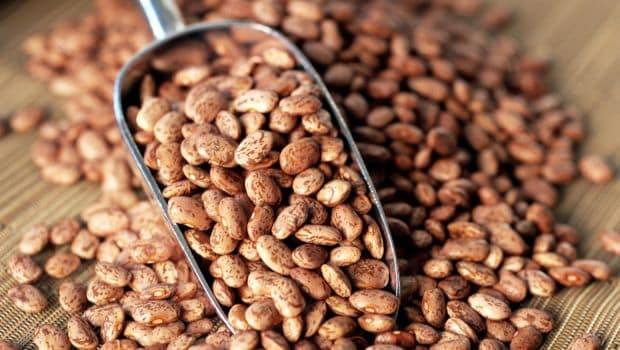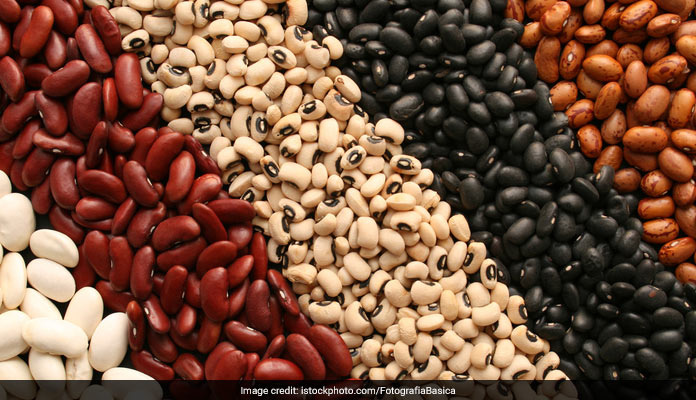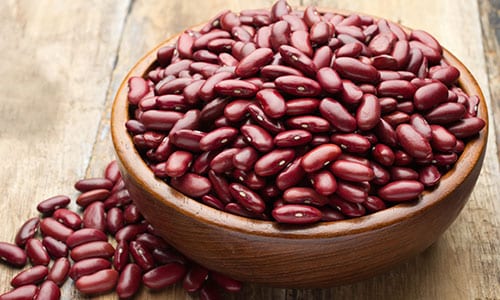
The size of beans must not be mistaken. They may be small in size, but they are powerhouses of iron, fiber, carbohydrates and vitamins. However, here’s where the catch lies. Beans are rich in lectins, these are proteins that bind carbohydrates and can be harmful to health. Studies have suggested that raw beans, especially red kidney beans contain lectins that are harmful and must be destroyed during the process of cooking. Different lectins have a different impact on the body and that’s why beans and grains must not be eaten uncooked and raw.
According to the book Diet & Nutrition, A Hollistic Approach by Rudolph Ballentine, MD, stachyose and raffinose are the two unique and unusual starches that cause gas in humans upon eating beans. The intestine does not possess the ability to break them down and enable unproblematic digestion. The bacteria present in the lining of the stomach breaks down these starches into carbon dioxide and hydrogen, giving rise to gastric issues, wreaking havoc in the body.
WHAT WE CAN DO?
However, this shouldn’t leave you disheartened and neither should it compel you to give up your favourite dish of rajma. There are ways in which the lectin present in these beans can be destroyed and the gas it renders can be well mitigated.
Occasionally, in most households, soaking the beans overnight does wonders but it isn’t sufficient to ensure that the lectins have been removed. Alternatively, boiling the beans properly too is a method that is crucial but again not sufficient in it self. According to Rudolph Ballentine, the process must be as elaborate as soaking the beans, boiling them, rubbing them and then cooking them. This is when it becomes safe and guarantees the fact that eating beans will not induce gas related issues in the stomach.

Different kinds of beans
It is important to be aware of varieties of beans that we ingest. Soybeans and broad beans are more difficult to digest and thus extra precautions must be undertaken for their preparation. The herbs and spices added to the beans, traditionally too help us get rid of the negative consequences that might occur. Rudolph Ballentine also suggests that sprouting helps mitigate gas producing starches, which improves its digestibility.
In today’s world, we often seek instant gratification and take for granted the harrowing effect that incorrectly prepared beans might have on the body. We might cook in a hurry, might not take prior cautions and often are oblivious to the activity of thelegumes in our stomach.
According to Dr. Anju Sood, a Bangalore-based Nutritionist, “only certain individuals are prone to indigestion and gastric issues after consuming beans.” According to her, the three crucial measures that must be taken for vulnerable individuals are; firstly, the beans must be cooked properly. Incorrectly prepared beans will definitely produce gas in the body. The preparation must involve addition of spices like hing and ajwain, which will counterbalance the production of gas. The presence of microbial cholera in the small intestine reacts to the beans and lead to gas. It is advisable to avoid combining beans with other ingredients such as cauliflower.

If you’re a bean buff but it does not suit your stomach, Dr. Sood recommends drinking loads of water. This will ensure proper digestion and reduce the risk of gastric issues.
If your bean addiction is only growing over the days and your body’s ability to digest them efficiently is not, increase the portion size only gradually. The body begins to get used to the beans and causes little trouble thereafter
Follow these quick yet crucial steps and enjoy a healthy bean meal!
[“source-food.ndtv”]



